Affiliate links on Android Authority may earn us a commission. Learn more.
What is the Oura Ring? Here's everything you need to know
July 17, 2023
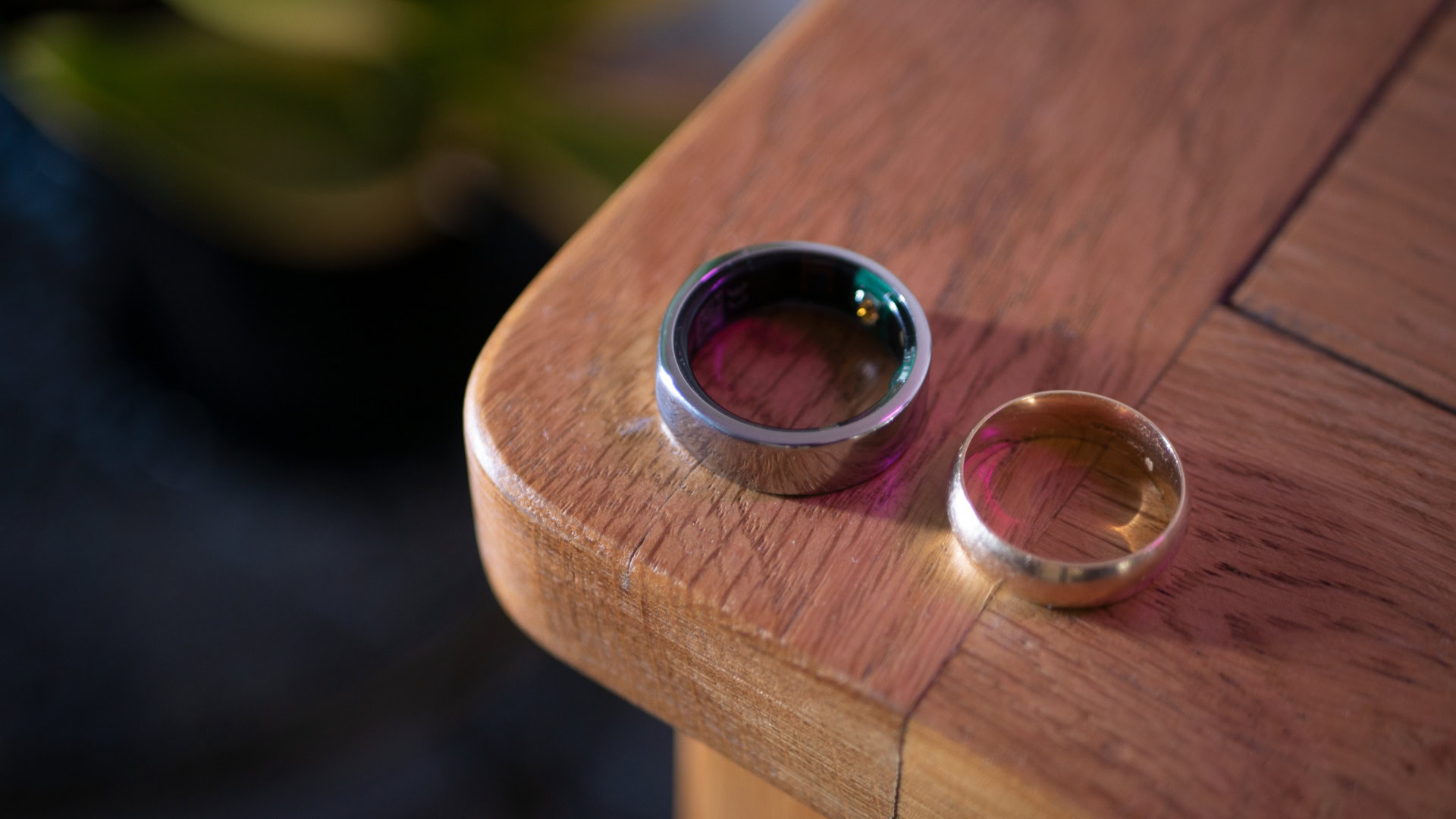
There are scant alternatives for those who don’t want a fitness tracker or smartwatch to keep tabs on their health. Screenless trackers have bit the dust, while health-tracking earbuds are only useful during activity. Smart rings are seemingly the only viable and practical alternative. The most recognizable brand in this segment is Finnish firm Oura, largely thanks to the Oura Ring.
Now a third-generation product, the Ring initially focused on sleep tracking but has grown to survey more health metrics than ever before. If you fancy the idea of a smart ring that monitors your body without fuss, read on to learn everything about the Oura Ring.
What is the Oura Ring, and how does it work?
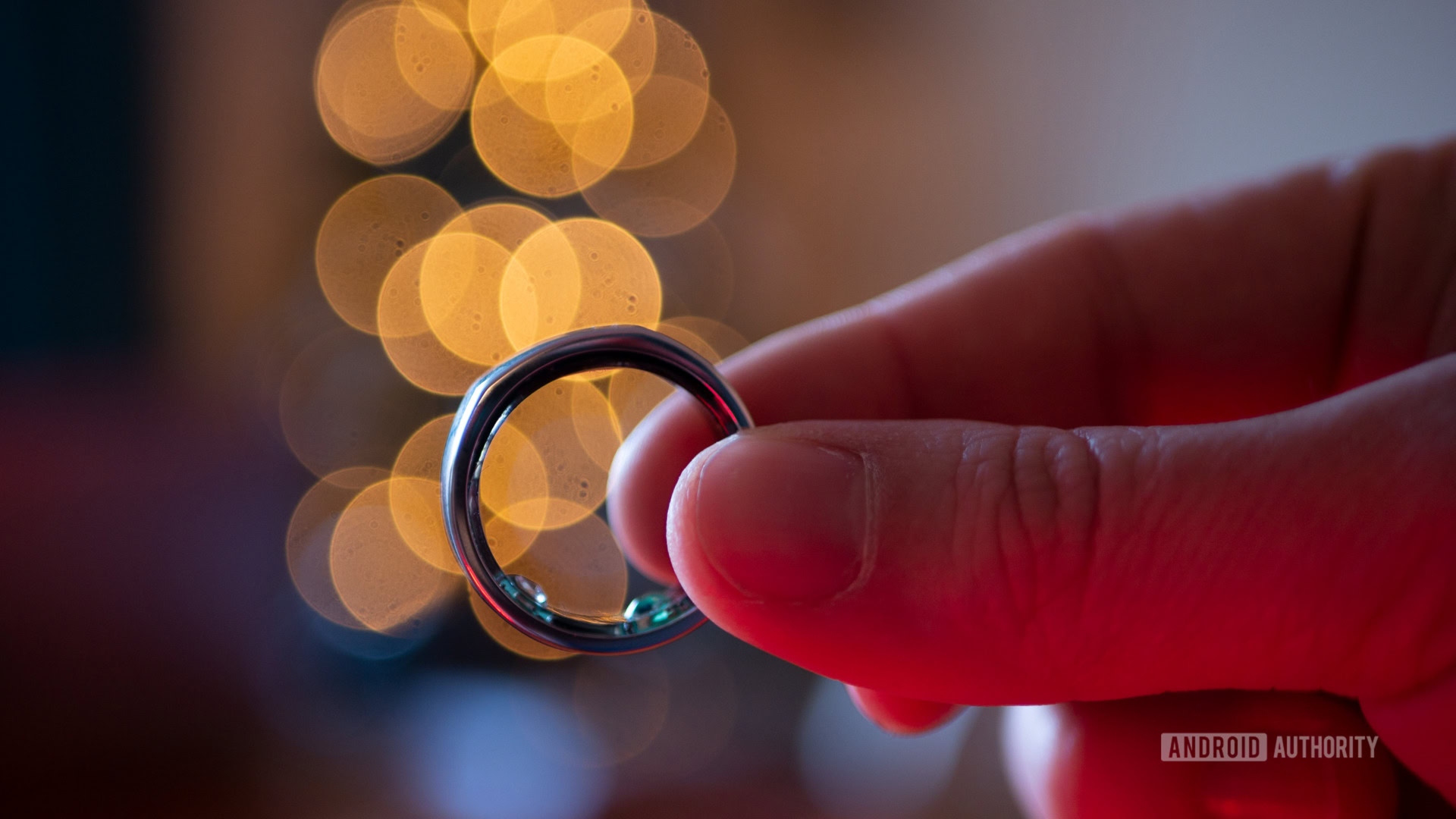
The Oura Ring is a wellness tracker in the true sense of the term, although it doesn’t fit around your wrist. As you can probably guess by its name, it’s designed to fit a finger. It looks like a piece of jewelry from its exterior, but along its inner edge, you’ll find all the sensor hardware that powers its health-tracking experience. There’s no display, just a clean finish that fashionable users will undoubtedly enjoy.
The current model on offer is the Oura Ring 3, which brings substantial improvements over the Oura Ring 2. The device is now available in two body shapes and offers blood oxygen saturation monitoring, more accurate body temperature tracking, and menstrual cycle prediction smarts. While the company still supports the Oura Ring 2, it’s no longer available to purchase from Oura’s official store.
There’s a lot to be said about fitness rings. They’re more inconspicuous than fitness trackers and free up a valuable piece of your wrist for flashier timepieces and fashion statements. They may also be easier to keep out of the way, at least when worn in bed. Those who enjoy cooking or gardening may want to look elsewhere for a health-tracking solution.
What does the Oura Ring measure?
The Oura Ring keeps tabs on a wide range of metrics and statistics. Its chief focus is sleep health and baseline wellness tracking, so you won’t find built-in GPS for activity monitoring or a swathe of sport tracking profiles here. Here are the metrics, statistics, and indicators tracked by the Oura Ring:
- Heart rate: The Oura Ring 3 tracks heart rate throughout the day and night, thanks to additional LEDs. The previous generation model only keeps tabs on your ticker while you sleep.
- Heart rate variability: This metric typically informs stress calculations and goes towards Oura’s Readiness calculation.
- Respiratory rate: The Oura Ring 3 calculates this figure by monitoring the changes in heart rate throughout the night.
- Blood oxygen saturation: This is a calculation of the amount of oxygen currently in your bloodstream. This feature is only available on the Oura Ring 3.
- Body temperature: According to Oura, the Ring 3 has several temperature sensors that allow more accurate body temperature readings at night. This data is also used for illness detection.
- Sleep: This includes sleep stages, sleep efficiency, sleep latency, and an indicator called restfulness.
- Sleep Score: The Oura Ring condenses the sleep data into a single number. The higher the number, the better the sleep.
- Readiness Score: This is one of Oura’s three scores that indicate how ready your body is to move. This score is calculated using resting heart rate, heart rate variability, body temperature, recovery, sleep, previous day activity, and activity balance details. Once again, the higher number indicates a good recovery.
- Activity Score: Oura informs users if they achieved an optimal balance of activity and rest through this score.
- Period tracking: The Oura Ring 3 uses its temperature sensors to help predict when the next period may begin.
- General activity and workout tracking: Oura introduced automatic activity detection for over 30 activities in early 2021, adding to its step count and daily distance covered estimates.
How accurate is the Oura Ring?
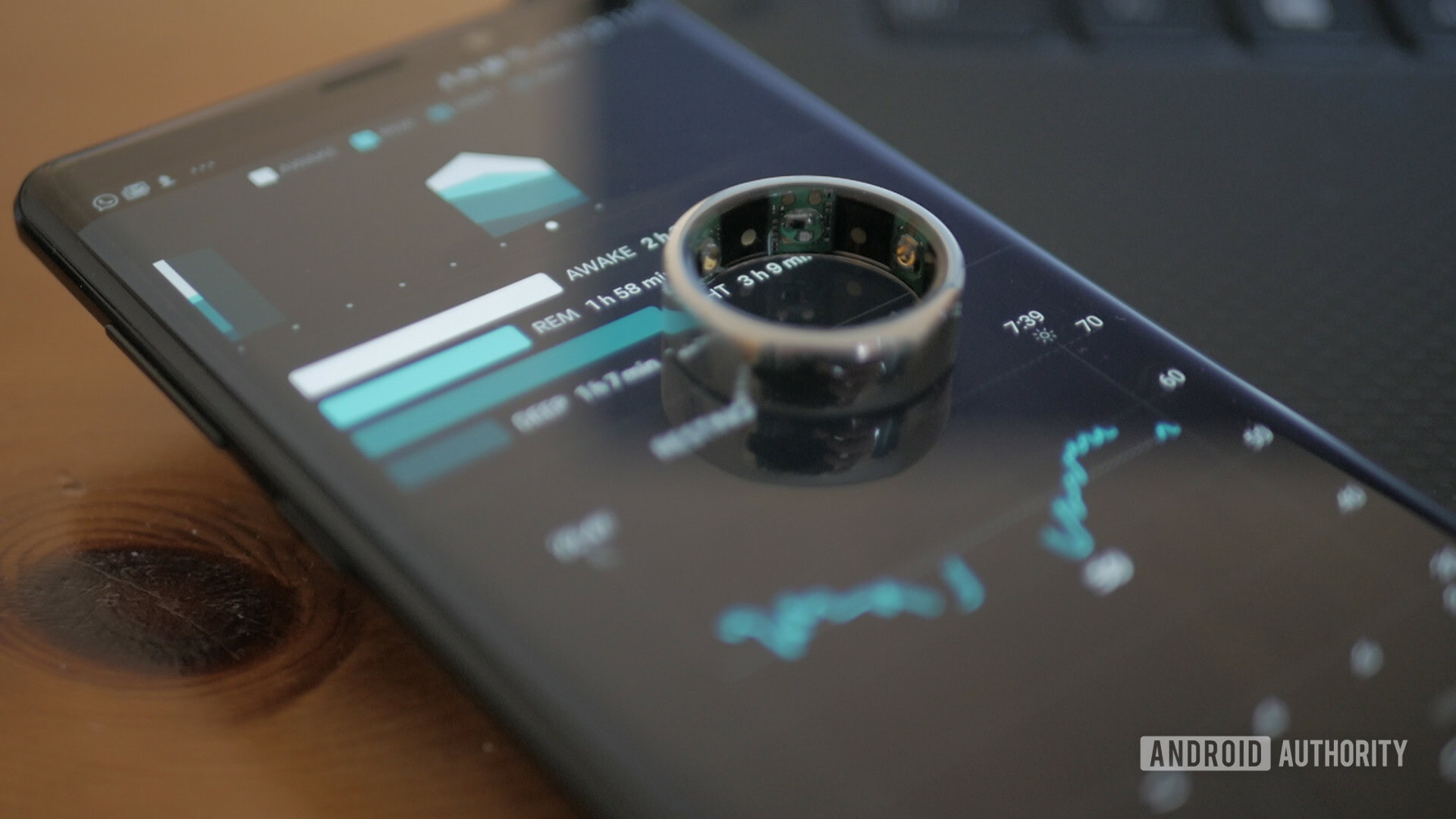
According to the brand’s own findings and external research, the Oura Ring is fairly accurate across several metrics.
In a January 2020 study conducted with 49 subjects, the Oura Ring performed almost identically to a medical-grade ECG when measuring resting heart rate and heart rate variability. Another study published in January 2022 suggests the Oura Ring could accurately monitor night-time heart rate and heart rate variability but showed some inconsistencies in particular technical areas.
As far as its sleep-tracking accuracy goes, there’s still a degree of variability. According to a peer-reviewed study published in Nature and Science of Sleep, the Oura Ring was 76-78% accurate when discerning the four primary sleep states compared to a full sleep test. Regarding judging whether a user is asleep, the Ring is between 92-93% accurate. This data was garnered from 58 subjects across 157 nights.
Oura suggests users look at long-term trends instead of “zero-point-something accuracy.” We agree. Monitoring health trends over longer periods is far more important for understanding your health journey than any instantaneous figures could be. There’ll always be a degree of inaccuracy with wearables, but being aware of the changes over time will help you spot improvements over weeks, months, and years.
Is the Oura Ring waterproof?
According to Oura, its Rings are water resistant up to 100 meters. This means you can shower and bathe with the Oura Ring and enjoy long-distance swimming and recreational diving. Oura doesn’t recommend using the Ring while scuba diving, nor should the device be submerged in water for over 12 hours.
Is the Oura Ring compatible with other fitness apps?
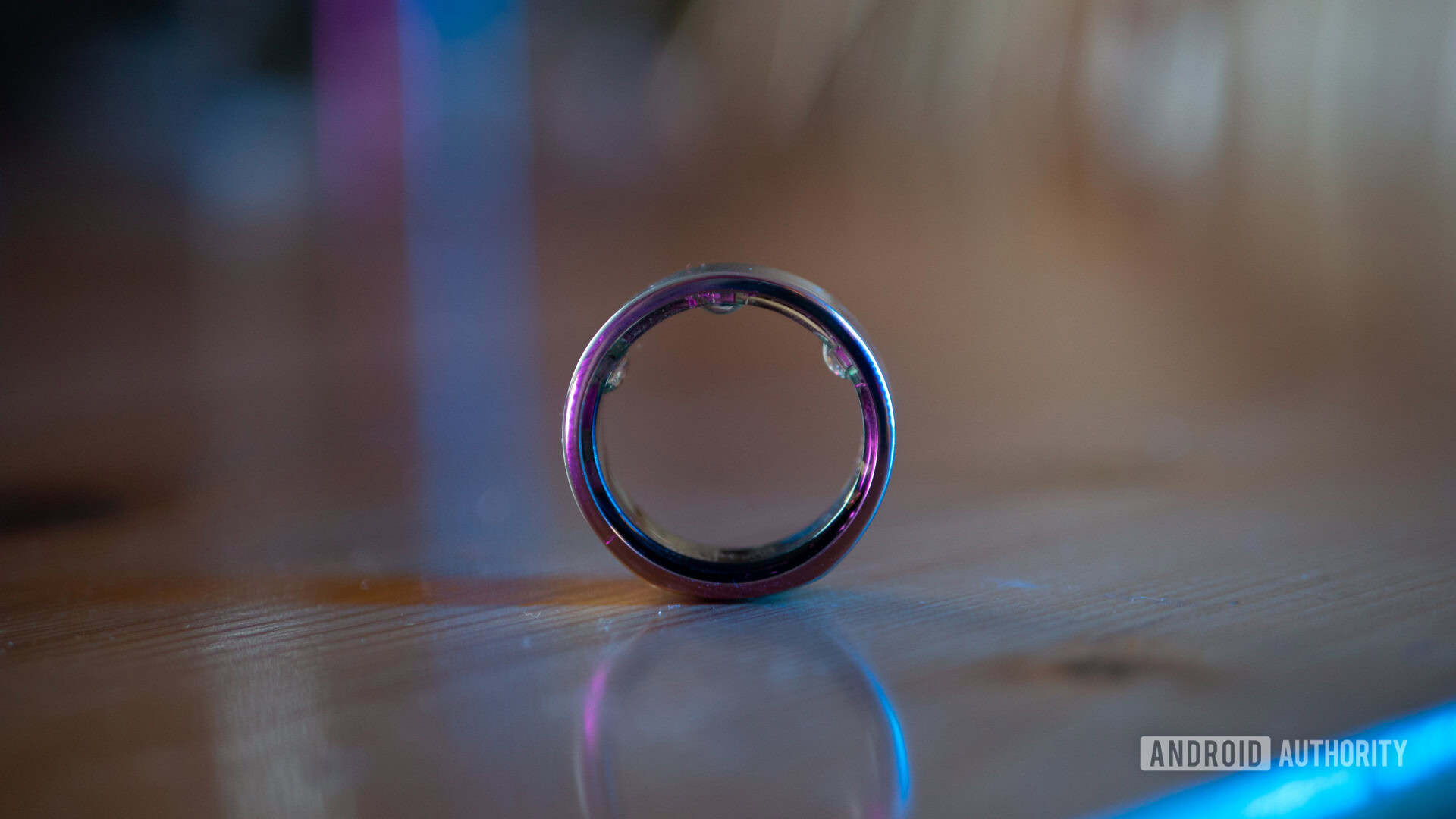
Although the Oura Ring companion app is excellent at displaying the information garnered from the device, you can link your Ring with third-party apps. Find a list of supported platforms below:
- Apple Health
- Google Fit
- Strava
- Natural Cycles
- Health Connect
- Oura Widgets
While Oura doesn’t directly support platforms like Samsung Health, you can use Google’s Health Connect to share your data with them.
Does the Oura Ring require a subscription?
The Oura Ring doesn’t require a subscription, but you’ll likely want one to unlock the experience fully. Several features are locked behind the premium subscription. These include detailed sleep analysis, all-day heart rate tracking, integration with third-party apps, advanced temperature monitoring, blood oxygen saturation monitoring, automatic activity detection, menstrual cycle prediction, and periodic trend reports. The Oura API is also unavailable for non-paying members, but these users can download Oura data on the company’s web platform.
Without a membership, you can access the Oura app’s three scores (Sleep, Readiness, and Activity), integrate your data with Google Fit and Apple Health, and access the Explore tab.
The Oura membership isn’t cheap, either. On top of the actual hardware cost, the Oura Membership costs $5.99 per month in the US, €5.99 in the EU, and $6.99 in other regions. If you buy a new Oura Ring 3, you’ll get a one-month free trial of the service.
Which finger is best for the Oura Ring?
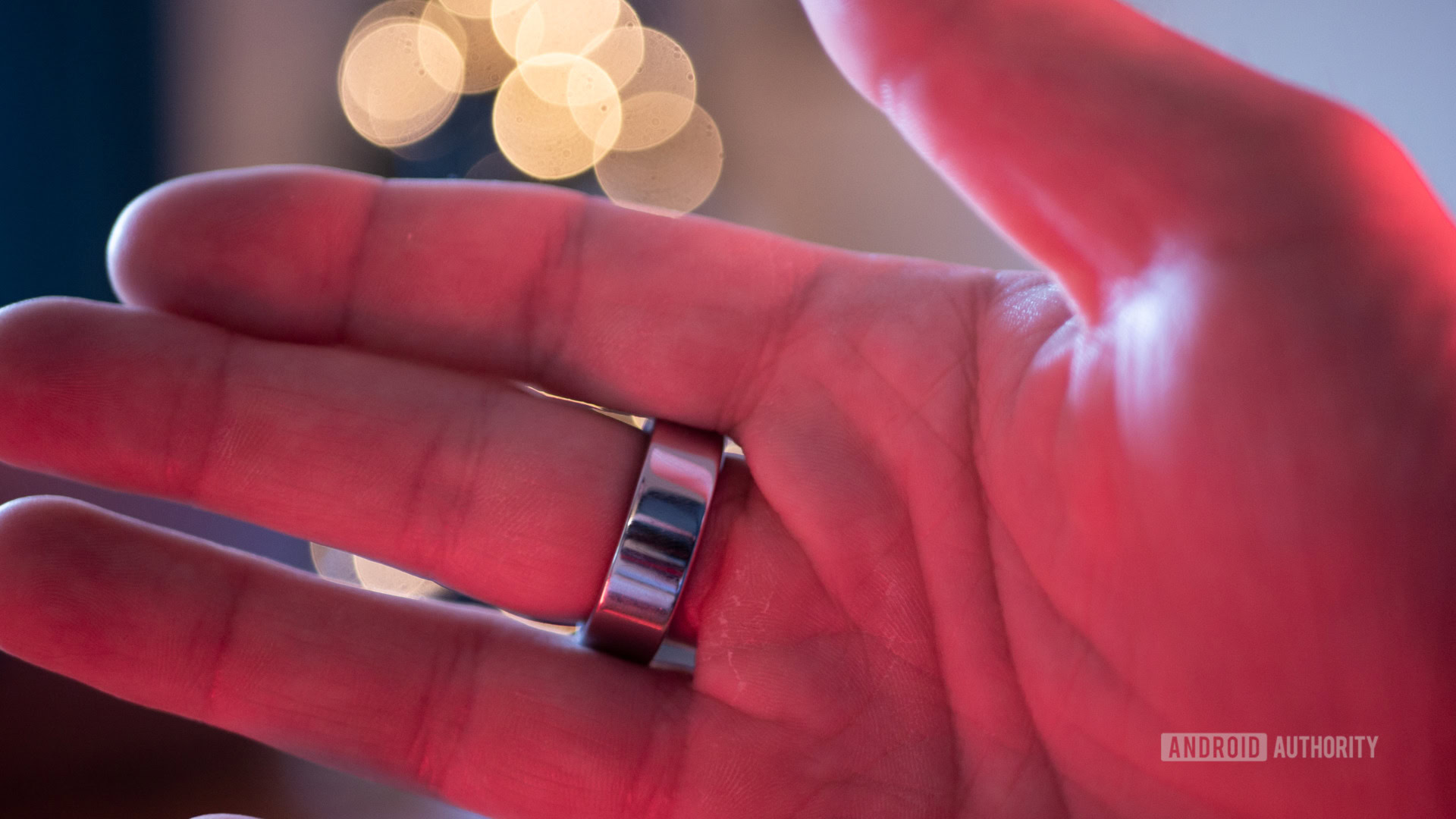
Oura recommends users fit the ring on their index fingers. This may be a little weird for some, but the company believes this finger provides “optimal performance and accuracy.” Alternatively, the middle and ring fingers are also adequate alternatives.
Regarding buying the right ring size, Oura will send you a sizing kit upon completing your order. You then try on the sample rings, contact Oura regarding sizing details, and the company will send out the Oura Ring in your preferred size.
The Oura Ring and the alternatives
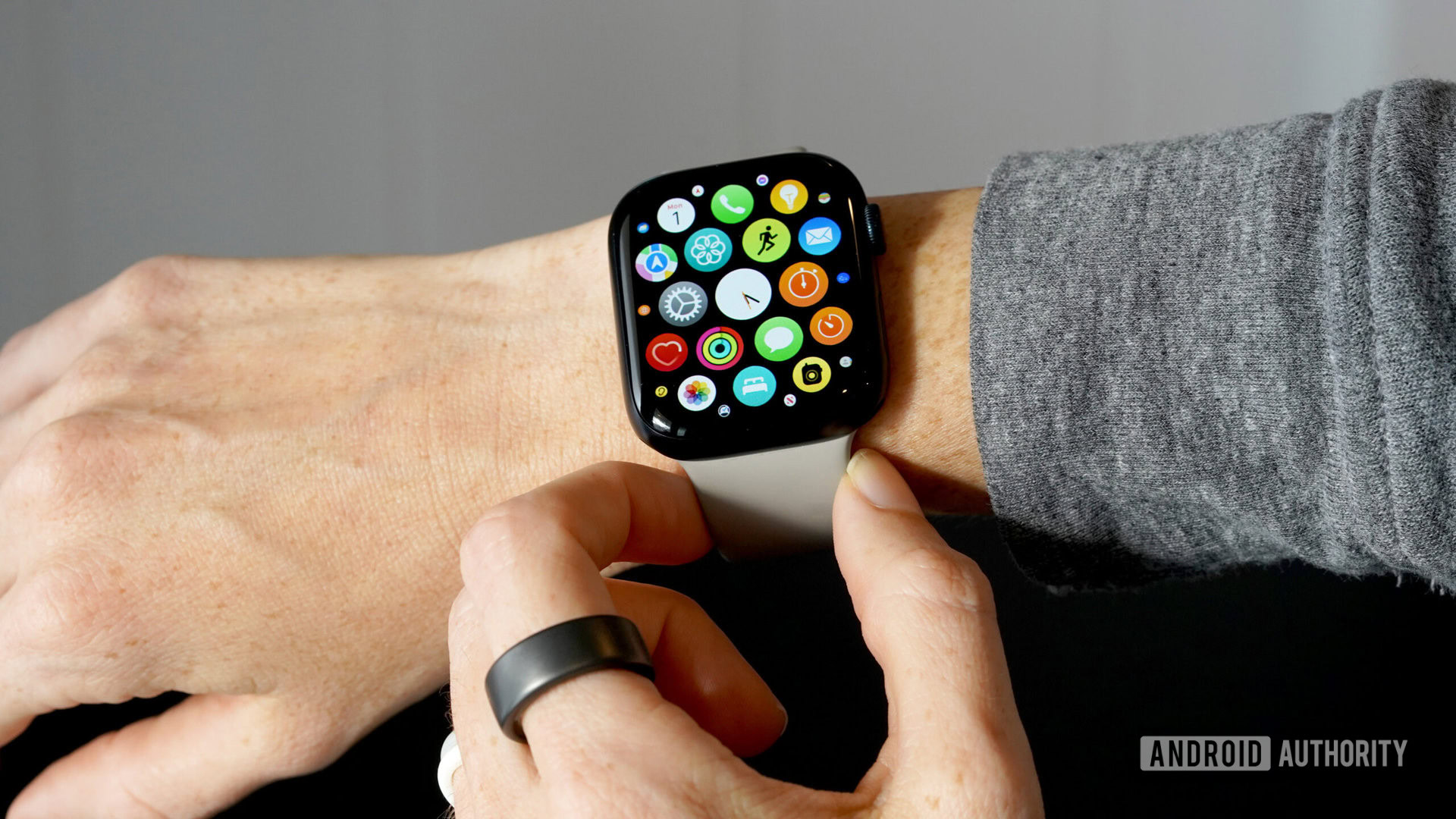
Although it’s among the best smart rings you can buy, the Oura Ring isn’t alone in the fitness tracking world.
We pitted the Oura Ring against the Apple Watch and found that the two devices were equally accurate. While the Apple Watch offers more powerful tools beyond fitness tracking, seamless integration with Apple devices, and a reliable GPS, the Oura Ring is a better pick for those who prefer an unobtrusive approach to wellness monitoring.
The same can be said about Fitbit’s devices and Oura’s offerings. For Android users, Fitbit’s devices provided a more accommodating alternative to the Apple Watch. The sheer number of form factors is also worth considering. Of course, Fitbit doesn’t offer a ring, so if a finger band is what you want, the Oura Ring is what you should buy.
A more interesting comparison is the Whoop vs the Oura Ring. Both screenless, the two trackers tackle wellness monitoring slightly differently. We found that the Whoop 4.0 is a much better fitness companion for athletes who want recovery details, personal coaching, and trend data. However, the Oura Ring is a better option for those who want a holistic view of their health.
How much is the Oura Ring, and where can I buy it?
The Oura Ring 3 starts at $299 for the flat-topped Heritage style. The completely circular Horizon style will cost you $349. Several finishes are available, including Silver, Black, Stealth (matte black), Gold, and Rose Gold. You can buy the Oura Ring 3 from the company’s official store.
Remember, with the Oura Ring 3, you don’t just pay for the ring itself. Factor in the subscription cost when purchasing the device.
FAQs
The Oura Ring does not have built-in GPS functionality. It does have connected GPS that relies on a tethered phone for location data.
The Oura Ring 2 and 3 feature similar battery life figures, lasting between four to seven days on a single charge. Your mileage may vary based on your usage.
While you can wear the Oura Ring during low-intensity workouts, it’s not advised that you wear it while lifting weights. Oura doesn’t recommend it as the Ring “may get scratched.” Additionally, wearing rings of any kind when weightlifting is not only physically uncomfortable but, according to healthcare professionals, extremely dangerous.